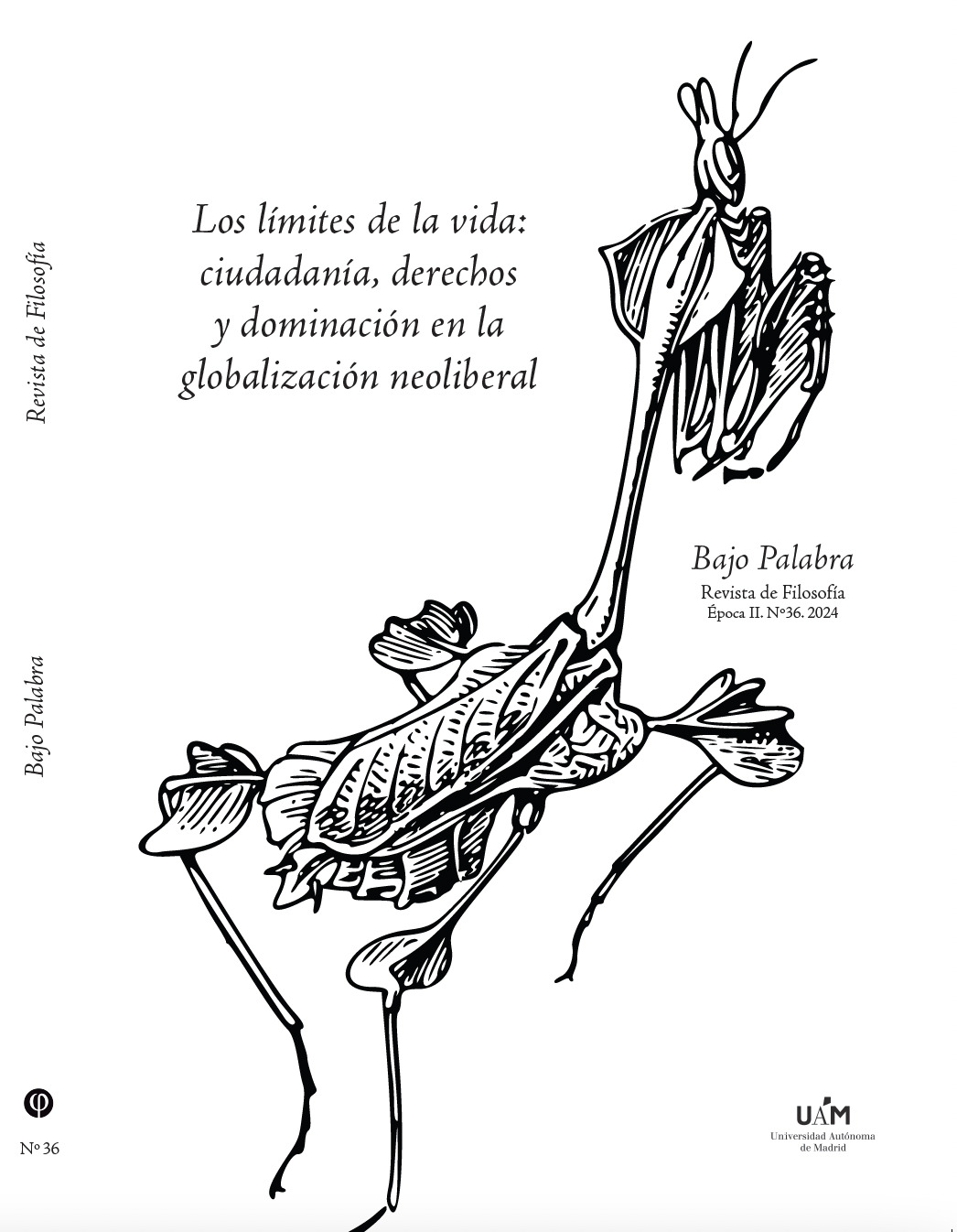Palabras clave:
igualdad, meritocracia, igualdad de oportunidades, ethos igualitario, principio de diferenciaDerechos de autor 2024 César Rendueles

Esta obra está bajo una licencia internacional Creative Commons Atribución 4.0.
Resumen
En los últimos quince años los problemas teóricos y prácticos relacionadas con la desigualdad social han cobrado una visibilidad pública, tanto en los medios de comunicación como en las investigaciones académicas, apenas imaginable antes del inicio de la Gran Recesión. Sin embargo, ese renovado interés por la estratificación social se ha enfrentado sistemáticamente al vigor consensual del paradigma meritocrático de la igualdad de oportunidades, que a menudo es percibido como el único horizonte igualitarista compatible con una democracia moderna y una sociedad compleja. Este artículo emplea un bagaje metodológico interdisciplinar para rastrear las transformaciones de los espacios sociales y morales en los que ese sentido común meritocrático está arraigado y explora, a su vez, la potencia de otras posiciones más profundamente igualitaristas.
Descargas
Citas
Appiah, K.A., “The myth of meritocracy: who really gets what they deserve?”, The Guardian, 19 de octubre de 2018.
Atkinson, A.B., Desigualdad. ¿Qué podemos hacer?, México, FCE, 2016.
Avin, S., “Funding Science by Lottery”, en Mäki, U., Votsis, I., Ruphy, S. & Schurz, G. (eds.), Recent Developments in the Philosophy of Science: EPSA13, Helsinki, European Studies in Philosophy of Science Vol 1., Springer, 2015 (https://doi.org/10.1007/978-3-319-23015-3_9).
Bertomeu, M.J. & Domènech, A., “El republicanismo y la crisis del rawlsismo metodológico (Nota sobre método y sustancia normativa en el debate republicano)”, Isegoría, (33), 2005, pp. 51–75 (https://doi.org/10.3989/isegoria.2005.i33.418).
Boehm, Ch., Hierarchy in the Forest, Harvard University Press, 1999.
Boehm, Ch., Moral Origins. The evolution of Virtue, Altruism and Shame, Nueva York, Basic Books, 2012.
Cohen, G.H., ¿Por qué no el socialismo?, Buenos Aires, Katz, 2011.
Colectivo IOE, “Renta y patrimonio en Espan?a: insoportable desigualdad. I?ndice sinte?tico del BSE (1994-2016)” (https://www.colectivoioe.org/inde
publicaciones_articulos/show/id/203).
Davis, K. & Moore, W.E., “Some Principles of Stratification”, American Sociological Review, 10 (2), 1945, pp. 242-249.
Domènech, A., El socialismo y la herencia de la democracia republicana fraternal, Barcelona, Sin Permiso, 2005.
Eley, G., Forging Democracy: The history of the Left in Europe, 1850-2000, Oxford University Press, 2002.
Finocchiaro, M.A., Beyond right and left. Democratic elitism in Mosca and Gramsci, New Haven, Yale University Press, 1999.
Forrester, K., In the Shadow of Justice, Princeton University Press, 2019.
García-Sierra, A., “The Dark Side of Meritocratic Beliefs: Is Believing in Meritocracy Detrimental to Individuals from Low Socioeconomic Backgrounds?”, Social Justice Research, 36, 2023, pp. 385–409 (https://doi.org/10.1007/s11211-023-00413-x).
Kerbo, H.R., Estratificación social y desigualdad. El conflicto de clase en perspectiva histórica, comparada y global, Madrid, McGraw Hill, 2003.
León, M., El arte de pactar. Estado de bienestar, desigualdad y acuerdo social, Madrid, Libros de la Catarata, 2023.
Markovits, D., The Meritocracy Trap, Penguin, 2019.
Marx, K. & Engels, F., Escritos económicos varios, Barcelona, Grijalbo, 1975.
Mijs, J.B., “Visualizing Belief in Meritocracy, 1930–2010”, Socius, 2018, vol. 4: 1-2.
Milanovic, B., Los que tienen y los que no tienen, Madrid, Alianza, 2012.
Mundó, J., “In memoriam. Antoni Dome?nech, la afirmacio?n de la tradirepublicano-democra?tica: epistemologi?a, historia, e?tica y poli?tica”, Revista internacional de e?tica y poli?tica, nº 12, ene-jun 2018, pp. 1-22 (doi: https://10.1344/oxi.2018.i12.208Nature, “The case for lotteries as a tiebreaker of quality in research funding”. Nature. 2022 Sep;609(7928):653 (doi: https://10.1038/d41586-022-02959-3).
Navarro, V., El subdesarrollo social de España, Barcelona, Anagrama, 2006.
Ostrom, E., Governing the Commons: The Evolution of Institutions for Collective Action, Cambridge University Press, 1990.
Piketty, T., El capital del siglo XXI, FCE, México, 2015.
Puyol, A., El derecho a la fraternidad, Madrid, Catarata, 2017.
–, El sueño de la igualdad de oportunidades, Barcelona, Gedisa, 2010, p. 34 y ss.
Queralt Lange, J., “El igualitarismo de la suerte”, Doxa. Cuadernos de filosofía del derecho, nº 38, 2015, pp. 189-214.
Rawls, J., Justicia como equidad, Madrid, Tecnos, 1999.
–, Teoría de la justicia, Madrid, FCE, 1995, pp. 88-110.
Ribotta, S., “El principio de diferencia y la aceptación de las desigualdades”,
Anales De La Cátedra Francisco Suárez, nº 55, 2021, pp. 281–305 (https://doi.org/10.30827/acfs.v55i0.15581).
Robinson, F. et al., “Poverty in the media: Being seen and getting heard”, Joseph Rowntree Foundation, 6 de julio de 2009 (https://www.jrf.org.uk/political-mindsets/poverty-in-the-media-being-seen-and-getting-heard).
Rodríguez, E. & López, I., Fin de ciclo. Financiarización territorio y sociedad de propietarios en la onda larga del capitalismo hispano, Madrid, Traficantes de Sueños, 2010.
Sandel, M.J., La tiranía del mérito, Barcelona, Debate, 2020.
Therborn, G., La desigualdad mata, Madrid, Alianza Editorial, 2015.
Wang, D. & Barabási, A.L., The Science of Science, Cambridge University Press, 2021.
Wilkinson, R. & Picket, K., The Spirit Level. Why More Equal Societies Almost Always Do Better, Londres, Allen, 2009.
Wolff, R.P., Para comprender a Rawls. Una reconstrucción y una crítica de la teoría de la justicia, Madrid, FCE, 1977.
Wright, E.O., Comprender las clases sociales, Madrid, Akal, 2018.
Young, I.M., La justicia y la política de la diferencia, Madrid, Cátedra, 2000.
Zeller, C., “El periodismo en la era de las desigualdades”, Clivaje. Estudios y testimonios del conflicto y el cambio Social, nº 5, 2017 (https://revistes.ub.edu/index.php/clivatge/article/view/18614).
